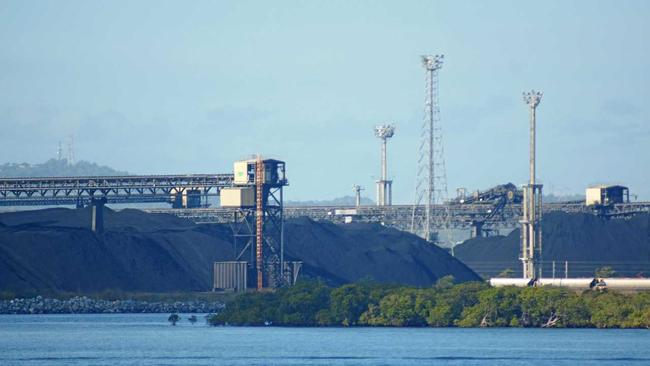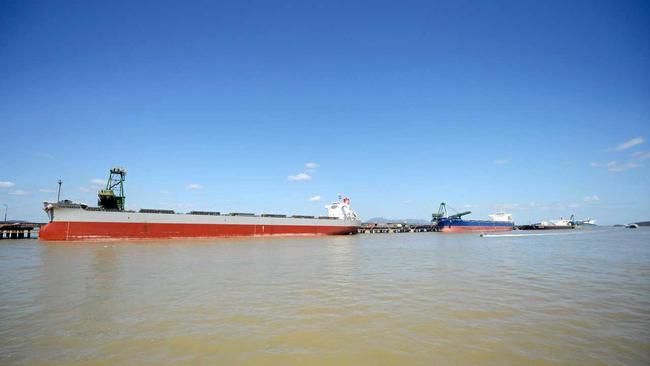New trading process on the horizon for commodities
The trial involved four coal shipments, including one from Gladstone, testing the blockchain system.

Coffs Harbour
Don't miss out on the headlines from Coffs Harbour. Followed categories will be added to My News.
THE resource and commodity industry is set to springboard into the digital era after the successful trial of a revolutionary global trading process.
The trial involved four coal shipments - including one exported to Japan from Gladstone's RG Tanna Coal Terminal - to test whether the current paper-based system being used in bulk commodity trading could be replaced by blockchain.
Australian company CommChain said the shipments had proven blockchain-enabled, end-to-end trade for bulk commodity logistics and trade settlement was a step closer to commercial reality.
One of the company's co-founders, coal industry veteran Phil McCarthy, explained the blockchain concept.
"It's a piece of software that means you only need to enter a piece of data once and it will travel around the chain for other people to use," Mr McCarthy said.
"For instance, the mine will put in its tonnes, the rail operator can use that data, laboratories can use that data, the port can use that data and the ship can use it.
"At the moment everybody uses different systems.
"So that one piece of data can be re-entered six or seven times by email, fax or paper-base systems.
"This is one piece of end-to-end software."
Mr McCarthy said the concept of blockchain started in the digital currency space but was vastly different to the cryptocurrency phenomenon.
"It's purely what's called in accounting terms as a distributive ledger - in other words - one ledger that different people can use," he said.
"It really suits when you've got bulk commodities such as iron ore, coal, copper and bauxite where you have a number of people having to handle it.
"It's one source of data for multiple users."

CommChain executive chairman Gary Zamel said the vision was to create a "step-change" in the bulk commodity industry, which despite transporting hundreds of billions worth of exports, still used outdated systems.
"The successful trial of the CommChain platform is a step change; it will transform the way bulk commodity trades are processed," Mr Zamel said.
"This Proof of Concept has illustrated that blockchain-based processes are commercially viable and bringing enormous benefits to industry in the form of savings of both cost and time, security and provenance.
"We have received significant interest from stakeholders, which includes our suppliers, transport logistics, traders and buyers."
The Proof of Concept was conducted through TransCoal in collaboration with several parties along the supply chain, including Jellinbah Resources and Stanmore Coal. The four cargoes exported during last month's trial were valued at US$15.25m.
CommChain director Faith Dempsey said the experiment would improve efficiency as the speed and accuracy of information would lead to optimised asset utilisation on the supply chain and faster payments.
"An immediate benefit to the coal industry is the elimination of the liquidity 'air-gap' for those sales agreements, which rely on paper-based shipping documents being delivered to the buyer to commence the payment process," Ms Dempsey said.
"In addition, the risk of losing or delaying document delivery via couriers is eliminated."
Ms Dempsey said she was excited about what a mature blockchain environment could deliver for rail and port operators.
"If we can deliver them the 'big data' that will allow them to maximise and more efficiently run their operations, then all parties should benefit with moving more coal through existing infrastructure ...," she said.
"Let the Australian resources industry be a leader in this field, not a follower."
Originally published as New trading process on the horizon for commodities


